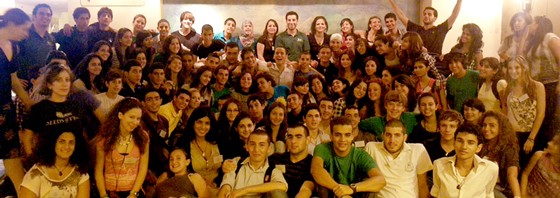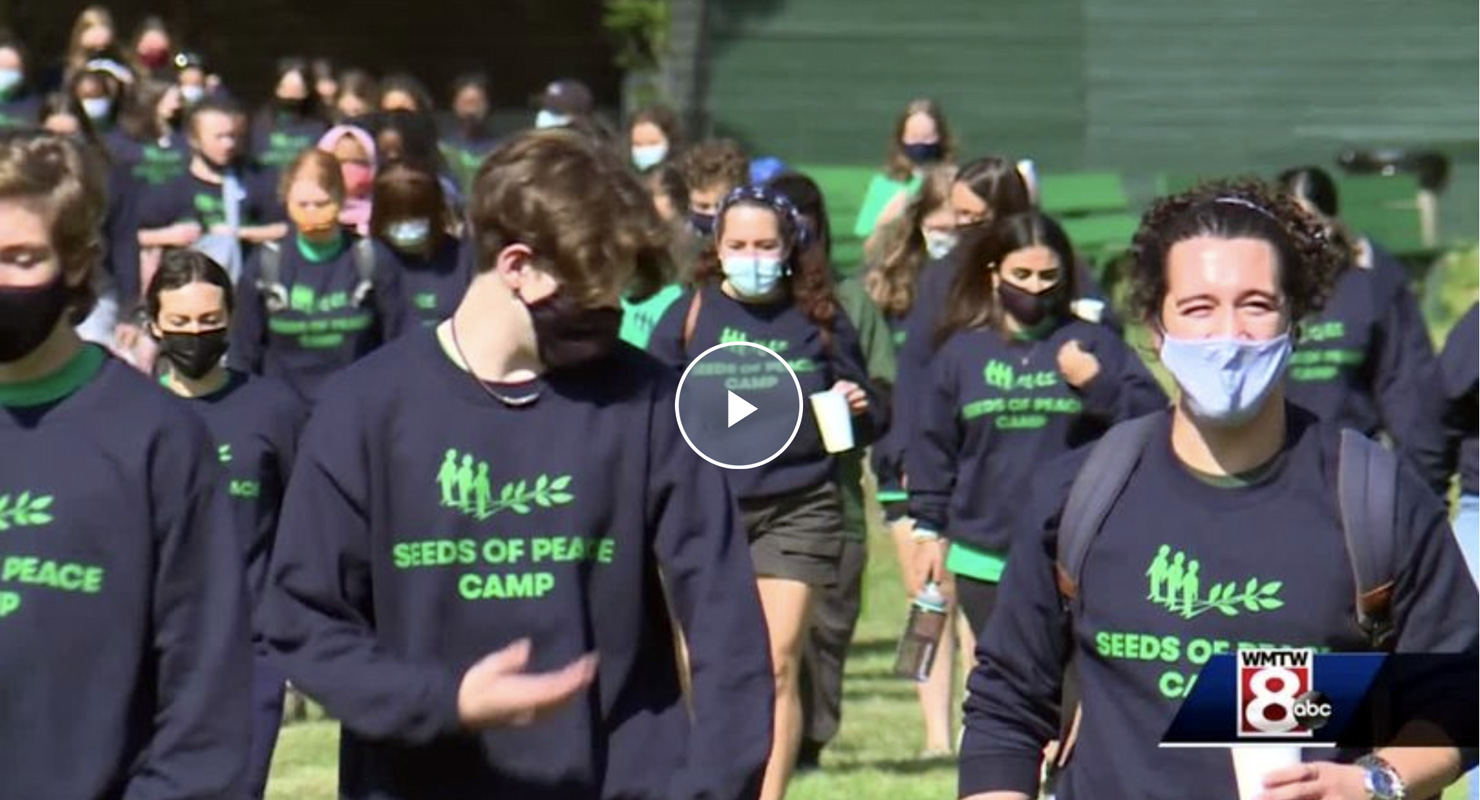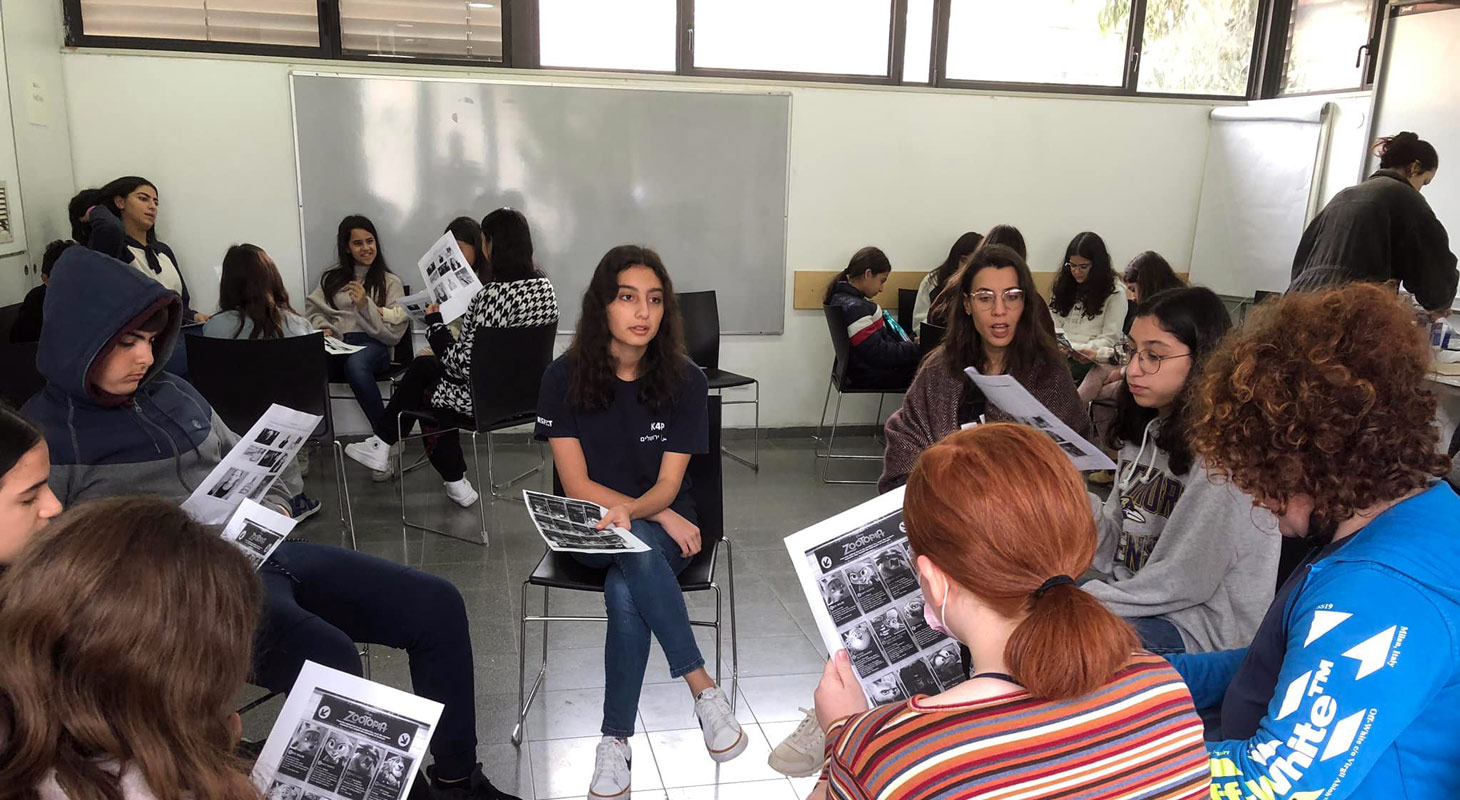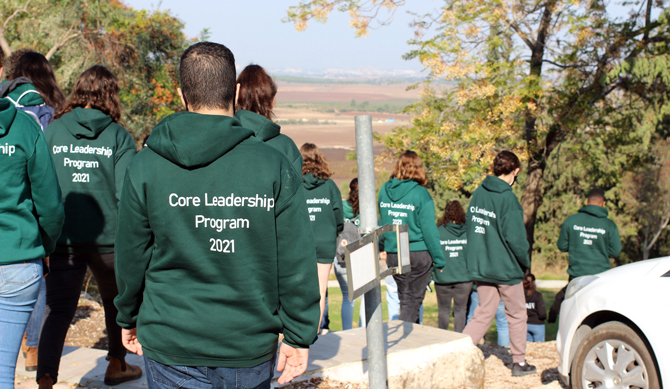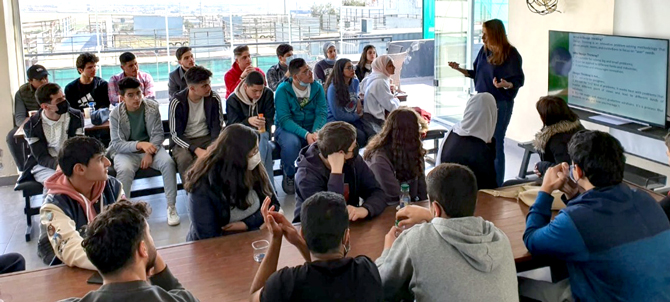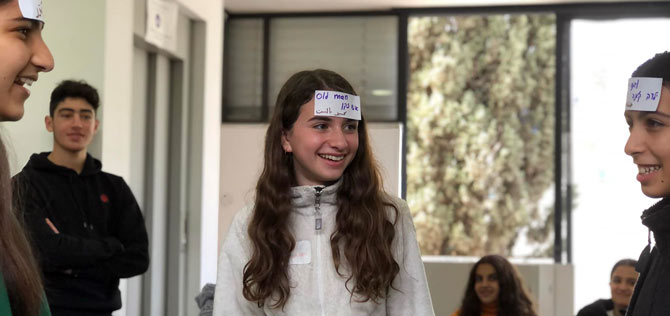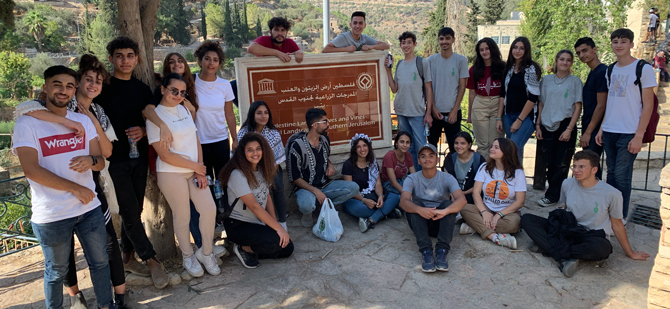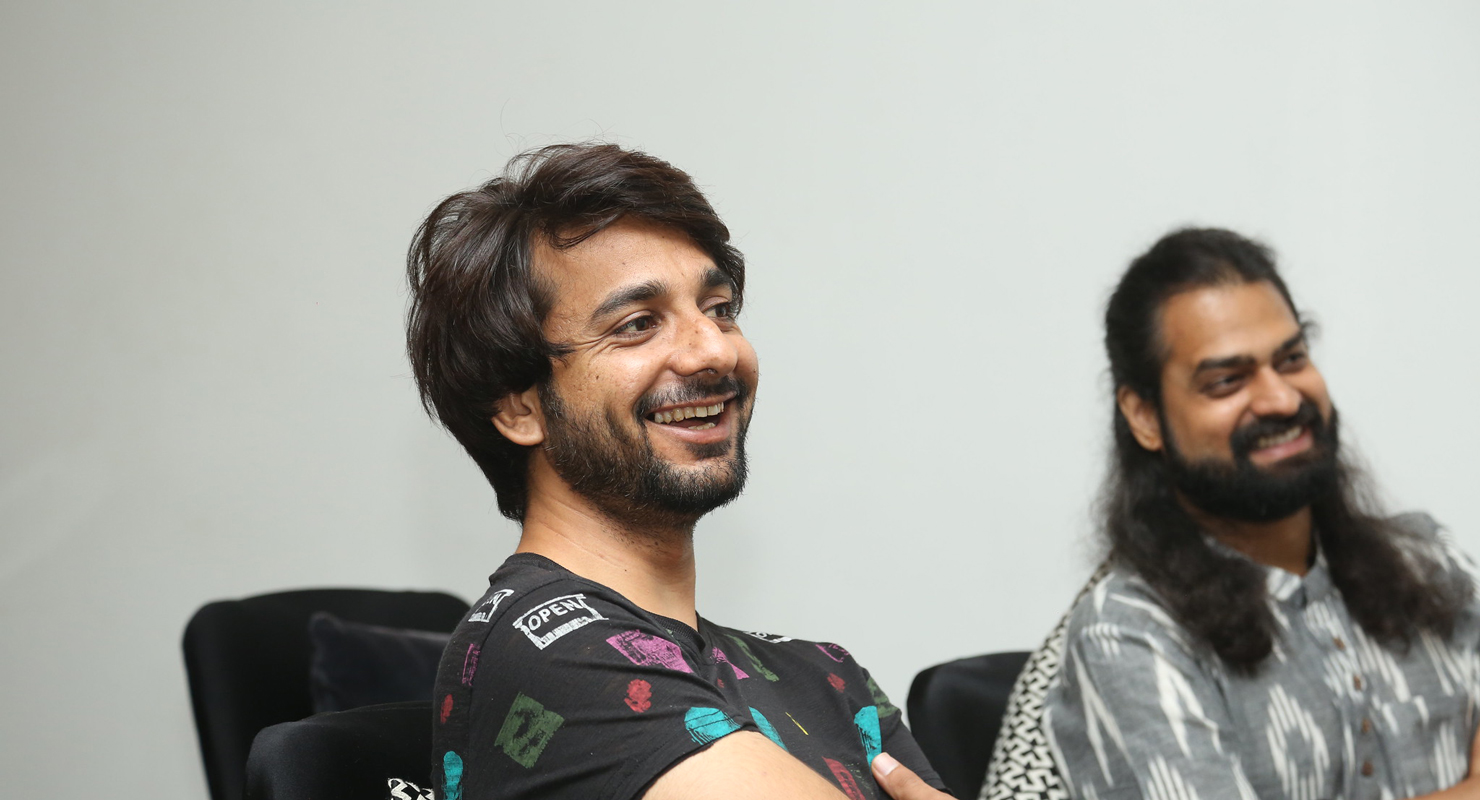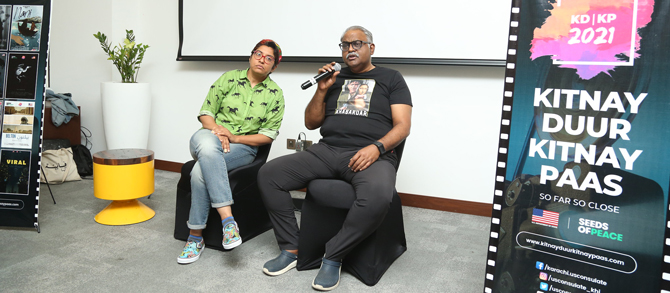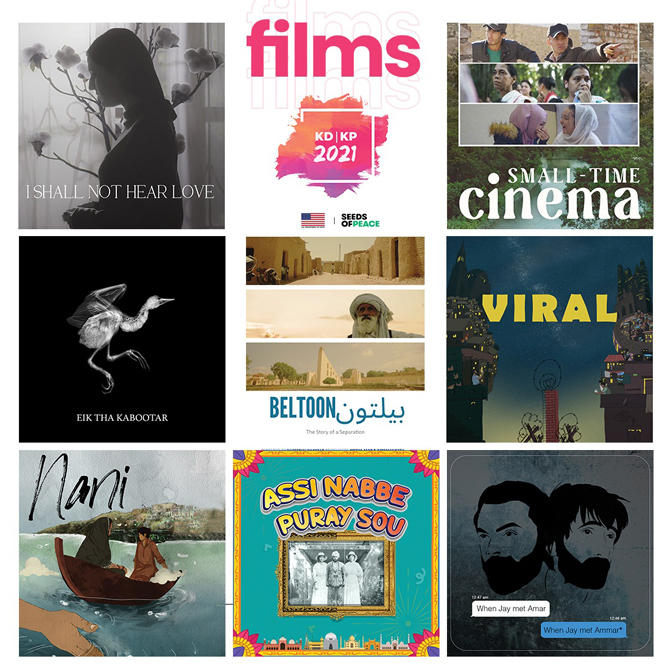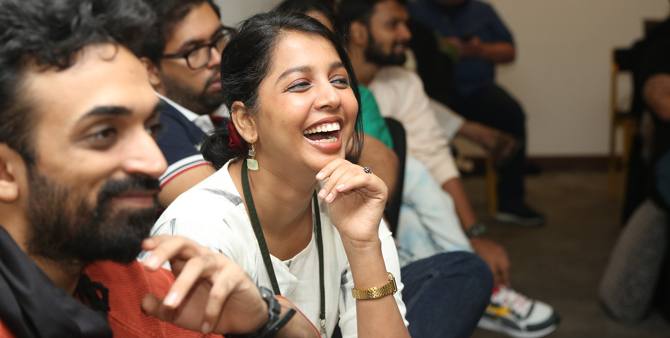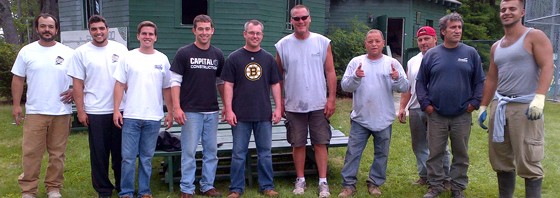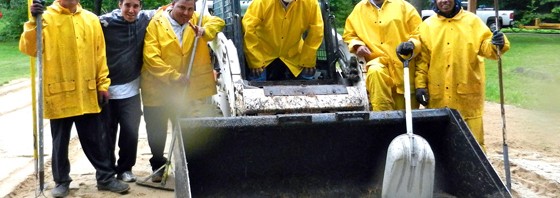BY SUSAN CAMPBELL | OTISFIELD, Maine The camper is definitely not happy. His counselor has talked to him — “You will sit here and talk” — and now Timothy P. Wilson, the venerated director of Seeds of Peace’s International Camp, steps in. Wilson calls the boy to the front of an open-air arena after the other 180 campers have headed to lunch.
The boy — 13, maybe 14, and intensely interested in pleading his case — is facing the camp’s waterfront on Pleasant Lake, but Wilson faces the camp, and any passerby can hear what he says to the boy. Mostly, he says, “Don’t give me that look!”
The eavesdropper knows to move away, but even stepping away, the director’s increasingly incredulous voice carries: “Don’t give me that look!”
Teens find a haven
Since 1993, Seeds of Peace in Otisfield, Maine, has been a haven for Israeli, Palestinian, Egyptian, Jordanian and American adolescents. Started by American Middle Eastern correspondent John Wallach, the camp is 45 miles north of Portland, up a two-lane highway of broken pavement crowded with lumber trucks, and is meant to give adolescents from war zones and beyond 67 acres to vent, grow and talk. Emotions can erupt at any moment — at the outdoor news board, where printouts from Internet Web sites such as Ma’an News Agency and Haaretz.com are posted daily, or at the telephones, when bad news comes through tinny lines.
“This summer has been a difficult one,” says Zaqloub Said, Palestinian program coordinator. “The kids have to deal with a lot.”
Inside the building where the news board is posted, campers practice a dance routine. At the Art Shack, someone has made a sculpture of eight tipped-over cups spilling paint on a board with the writing: “We are all the same, just different colors.”
Over in a large field house — which later will house at different times the Muslim and Jewish services to which everyone is invited — 14 boys and one girl play Ga-Ga, an amalgamation of games that looks most like dodgeball. When someone breaks a rule, someone else quickly corrects the player — in English, the camp’s official language. When someone is tagged and curses at having to leave the circle, someone else calls out, “Watch your language!” Meanwhile, on a stage, a boy named Micah plays a lilting song of his own composition on an upright piano.
Over the years, the program has expanded to include the Center for Coexistence in Jerusalem, as well as smaller programs in the Balkans and throughout the Middle East and South Asia. Follow-up after three weeks in the Maine wilderness is crucial, Said says, even when political turmoil and bombs keep delegations apart.
The focus is adamantly apolitical and relies on the twin swords of close proximity with the enemy and adolescent bonhomie to smooth out differences.
At Seeds, that bonhomie comes out in the oddest ways. On the day when Wilson steps in to talk to the irate camper, a group of counselors is sent into the Maine wilderness to retrieve yarmulkes for a Jewish service scheduled later that day. The closest yarmulkes, says Wilson, are in Portland.
At a basketball game against campers from nearby Camp Androscoggin, a young Arab woman in a black hijab, a headdress, beats an empty water bottle with a stick and chants, “Seeds. Will Be. Is Always. The Best!” Sometimes, she substitutes “Peace” for “Seeds,” and the other campers cheer along. The Seeds team wins, 54-43.
The real work of the camp comes in three dialogue huts. Inside the 10-by-20 green cabins is a circle of white plastic lawn chairs, a water bottle, cups and a box of Kleenex. Here, campers come and talk in hourlong-plus conversations led by trained facilitators who are often former campers known as peer-support campers. Having campers graduate from the program and then come back to play a part has been Wilson’s plan all along, he says.
“I have waited for years to have facilitators like this,” he says.
Discussion stays inside hut
Similar to 12-step programs (no discussion outside the huts can relate to discussions inside), the dialogues were introduced after the camp’s first summer, Said says. He’s proud that he hasn’t been inside a hut in his six-plus years working at Seeds because he doesn’t want to influence the conversation.
“No one has an agenda here,” he says. “Most of their lives these kids are taught how to think. When you grow up in such a political environment, everybody is involved. They hear their parents talk, their families. There’s a lot of propaganda. Here, they are allowed to think for themselves. They get an opportunity to do some critical thinking.”
The facilitators are trained — one Palestinian and one Israeli per session.
“It’s so hard, it’s so honest and it’s so true,” Said says.
Recently, Kristen and Amer Nimr of Southport came to the camp to visit their sons, Rakan, 15, and Ramzi, 14. Kristen Nimr, who grew up in West Hartford, says she started looking for opportunities to expose her sons to different cultures after 9/11 — even though the family returns to Jordan each summer to visitrelatives.
“I read about Seeds of Peace and thought, `This is for my boys,'” she says. “Things like this are so critical to the world right now. I want to have hope for my children.”
At Muslim midday prayers, Muslim and non-Muslim campers leave their shoes at the door and enter quietly. Those in shorts are handed sheets to cover their legs. The campers visiting from Androscoggin come in a group, having wrapped their white sheets around them like togas. The observant Muslims come covered.
“If I don’t know what I’m doing, can I still pray?” an American asks a Muslim girl wearing a scarf.
The girl thinks a moment, then says, “You have to know the prayers. It’s something you learn as a child. It would be pretty hard to follow along.”
The American nods and takes a seat on a bench to watch. Kristen Nimr crowds in, as do her sons. Amer Nimr finds a shady bench outside.
“I come from a long line of non-practicing Muslims,” he says, smiling. “Put in a good word for me.” Afterward, Kristen Nimr comes out, also smiling. “That is their first prayer service,” she says of her sons. “Now they will have friends from all over; they will have friends to visit.”
Wilson was a beloved football coach before he came to Seeds. Next year, he’s leaving the camp to go back to coaching football at Dexter, Maine. At the daily campwide gathering before lunch, he commands attention from a large chair.
Conflict resolution
Meanwhile, a counselor tries to corral the irate 14-year-old.
“OK,” the boy says. “You have talked to me, and I have heard you.” He starts to stand, but the counselor blocks his path. That’s when Wilson steps in.
A few minutes later, he drives up to the camp’s outdoor lunch in a golf cart, and the intense camper is seated next to him, smiling.
“What did we agree?” Wilson asks him.
“I will tell Adam,” the camper says. He touches fists with Wilson and leaps out, smiling.
Wilson says the boy is from a wealthy family in Egypt. He balked at his chore for the day, cleaning the bathroom. Wilson convinced him that everyone must perform assigned tasks, even unpleasant ones. The boy agreed to take another stab tomorrow, with the promise that if he does a good job, Wilson might slip him a camp ball cap when he gets on the bus to leave.
A ball cap? For cleaning the bathrooms? Wilson laughs and shrugs.
Relationship by example
“I want them to go back and be better people,” Wilson says. “I want them to go back and show by their actions what they can teach each other. It’s a relationship by example.”
“At the end of the day, we don’t solve the world’s problems,” Said says. “We have to remember that they are 14. It’s not fair of us to think the adults can mess something up and then hand it over to 14-year-olds to clean it up. Sometimes I just want to shake their hands when they get off the bus and send them right back home. Just by coming here, they’ve done a great thing.”
Still, Tomer Perry, an Israeli counselor who started as a camper, says observers shouldn’t underestimate the power of young people talking together.
“I was 14 when I came here as a camper,” he says. “I loved living in the woods. I loved living with eight or 10 other people in a cabin. I even loved the food. Only later could I connect with the principles of the camp. I went home to my class and talked to my class and then another class and another. John Wallach used to say he dreamed of the day when a Seed would be president and another would be prime minister. I don’t think we should wait that long. I think a lot of people can have influence in a lot of different places.”



